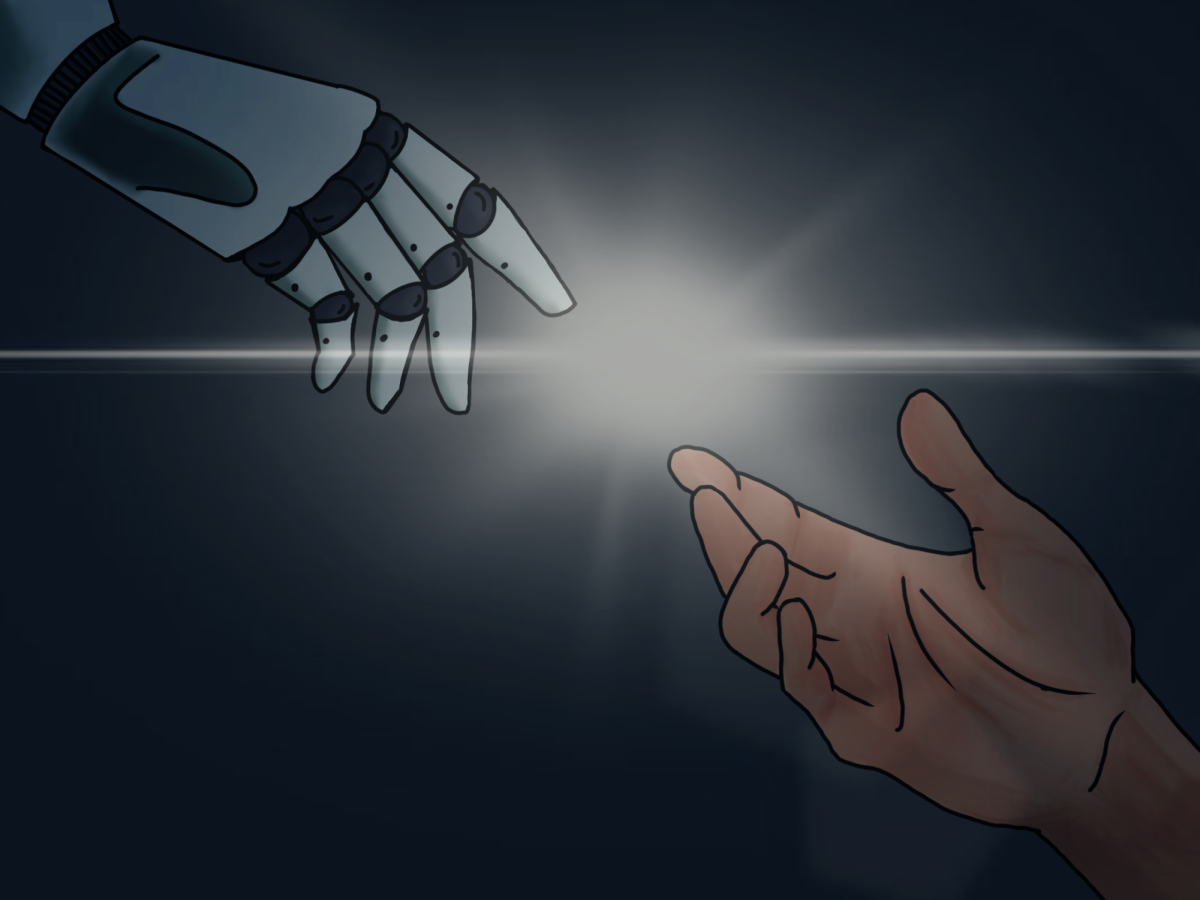Privacy is a relatively simple concept in real life: it’s something we all want, but don’t want to violate. It’s almost considered an unspoken natural right that everyone has and should uphold. However, when the lines blur between what is tangible and what is online, the concept of privacy slowly starts to fade. What truly is the root cause of the difference between privacy online and in real life?
Oddly, from a young age we are taught not to let strangers know personal aspects of our identities like our location, our age, or our phone numbers; even with this, we give our information up so easily to websites with “terms and conditions” that go on for miles. As we grow throughout our teenage years, we struggle to relate with our own parents but somehow develop parasocial relationships with people we’ve never met before. Privacy is such a simple concept in real life, but grows to have layers and complexities online. Just think, what makes us accept strangers we have never met before, knowing personal information about our lives?
It is hard to find anyone, regardless of age, that actually reads the fine print. How many terms and conditions have we read that are legally binding with things like Instagram, Snapchat, Tiktok, Facebook, ChatGPT, and more. Hidden in the miles of words that we tie ourselves to are many concerning practices; we allow private businesses to use our information and share it with others but act surprised when we see Instagram suggesting something we were searching about on Facebook.
Businesses benefit from using your information; they are able to cultivate an algorithm that interests you specifically, therefore grasping your attention for a longer time. By making the terms and conditions lengthy and impossible to read, businesses can often manipulate people into skipping over concerning practices within them for the simple fact that it is too cumbersome to read for the average, busy person. In reality, it’s generally annoying when someone shares your information to others behind your back, but these companies do it all the time online. Yet it doesn’t seem to bother the majority of people, who don’t even know what they’re signing away when they select “I agree”.
Furthermore, not only are we the victims of invasion of privacy, we, viewers, also sometimes can be the perpetrators. Before the age of social media celebrities were something untouchable; the general public found it hard to relate to the elitism that actors, high profile businessmen, famous athletes got to have. However, as social media has developed over time and celebrities are able to cling on to their audience more, the rise of parasocial relationships has been rampant.
The term “influencer”, which literally is a celebrity whose entire job is to influence a bunch of people, has risen in popularity in the past two decades. It is not like celebrities didn’t have sway before, yet with social media the lines get blurred between viewers and celebrities. People who parallel our lives like struggling students, high school athletes, angsty teenagers, are now getting famous easily. These people are easier to relate to , so it is easy to find solace in someone’s channel or page who you feel is in the same situation as you. This is how parasocial relationships develop: through the reliability and connections between viewer and celebrity.
On the influencer/celebrity side of things, this can be both a strength and weakness. Parasocial relationships can be dangerous for celebrities. Many influencers experience getting swatted (making a prank call to emergency services to bring a large number of armed police officers to a particular address unnecessarily), being stalked and even as far as losing their lives because of parasocial relationships throughout the years. The rise of social media only intensifies the situation because now with different applications, people with the wrong prerogative can easily get access to content of their favorite celebrities. Circumstances that can harm influences like doxxing and deepfakes are becoming more common as social media keeps infesting itself into our lives.
Despite this, influencers can still benefit from this invasion of privacy. Parasocial relationships allow celebrities to convince their audience to stay for a longer time because they have a friendship with each and every viewer. To stop watching your favorite influencer would be like losing somebody. Many celebrities see the monetary benefit from this so they work to cultivate this parasocial atmosphere. To a certain extent it isn’t necessarily the viewers fault for the parasocial relationship. Influencers are also given more direct control over their audience to prevent situations like doxxing and swatting. However, with regular people rising to fame, it is hard for these people to afford the high-detail security of previous celebrities.
On another level, parasocial relationships can be taxing on the viewers’ mental health. Parasocial relationships are one-sided and require much emotional attachment as well as investment to maintain. Without having that other person consistently giving affirmation, a person’s mental health can decline. It leads to feelings of jealousy, disappointment and hurt if this parasocial relationship becomes too intense.
The dangers of invading privacy online comes to an extreme when children are involved. In the past century, America has made strides to maintain children’s safety in the workplace, specifically industries like TV and film. At first, young people like Shirley Temple experienced a lot of abuse and exploitation at a young age; now it is rare to find this happening because of the rules and regulations that were put in place by the Coogan law and the enforcement of these laws through labor unions like SAG-AFTRA. However, with the rise of influencer children, vlogging families, and more, there is no governmental regulation for these children. Children are subject by their parents and other adults in their life to cultivate a parasocial relationship with other children their age. Many of these children end up surpassing their parents in the amount of money that they make, causing their parents to keep promoting their child even with the negative effects.
The dark web profits immensely off of children that are so easily accessible online; despite this, parents still push their children to have an online presence. In the recent Netflix documentary Bad Influence: The Dark Side of Kid Influencing, the abusive atmosphere that is cultivated in the child influencer space, and the amount of predators that lurk and work in every corner of it are displayed to the public.
Truly the morality of the situation, although skewed, is most likely ignored because of one factor: money. When businesses exploit our privacy as viewers, they curate an addictive algorithm leading to more profit for them. When parents exploit their children online, they make a lot more money. When influencers cultivate a parasocial relationship with their audience, even in spite of the negative effects it may have on their fans, they make money. Invading privacy is a useful business strategy for influencers and celebrities in the age of social media.
Some think that because invading privacy is just another cutthroat business practice but others believe that the more lines being crossed need to be addressed by the government. For now as individuals, before we accept those terms and conditions, we should think about what is being used with our information, where it is going and what do I really gain from having these apps on our devices.






































